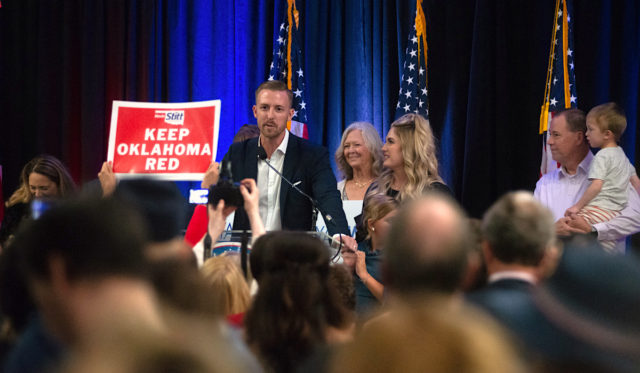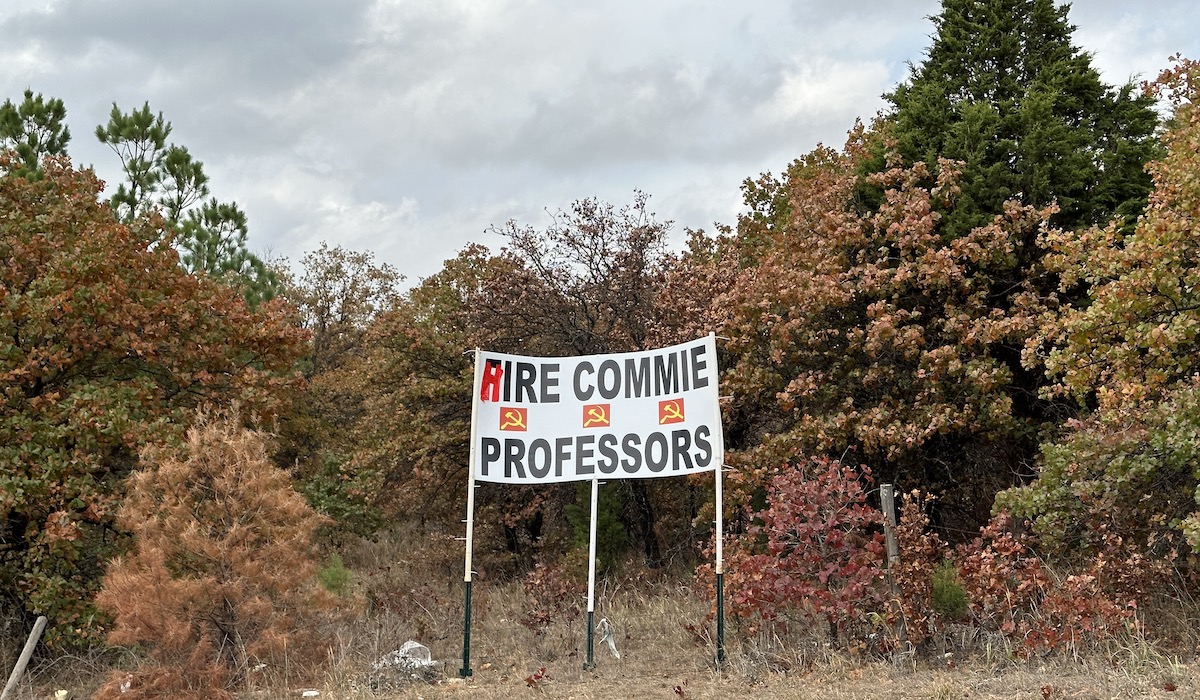

After an unusually dramatic election cycle for a typically-down-ballot race, Republican candidate and Secretary of Education Ryan Walters will be Oklahoma’s next State Superintendent of Public Instruction.
Walters won almost 57 percent of the vote, beating his Democratic opponent, Jena Nelson, who garnered just 43 percent. Running a campaign against “left-wing indoctrination” and critical race theory, his win represents a victory for newly reelected Gov. Kevin Stitt’s education agenda.
“We believe that we’ve got to reject Joe Biden’s radical agenda right here in the state of Oklahoma,” Walters said in his victory speech at the GOP Election Night watch party. “The message was sent loud and clear: In Oklahoma, we’re doing more than any other state in the country to empower parents. (…) Let me say the message so it can be loud and clear so that the radical, left-wing teachers unions can hear it, so that Joe Biden can hear it: Folks, Oklahoma won’t go woke.”
Walters will become the state’s top education official when he takes office in January, leading the Department of Education and chairing the state Board of Education.
Walters has been a major proponent of school vouchers, a proposed plan that would allow parents to use public funds for private or homeschool options for their kids. Critics, including Nelson, have argued that vouchers will hurt public schools, particularly in rural areas where parents do not have private school options.
Walters is also a vocal supporter of the controversial HB 1775 and argued that the state superintendent should use the law more aggressively to hold educators accountable.
Signed into law last year, HB 1775 bans the teaching of some concepts regarding race and gender. Walters and Stitt have both touted the law as a ban on critical race theory, an academic concept taught in some colleges and law schools. The law is currently facing a lawsuit in part for being too broad, and critics have argued that it creates a culture of fear in classrooms.
Stitt appointed Walters, a former history teacher from McAlester, to be state Secretary of Education in September 2020. With endorsements from conservatives such as state Sen. Nathan Dahm (R-Broken Arrow) and U.S. Senators Jim Inhofe (OK) and Ted Cruz (TX), Walters successfully mobilized the state’s Republican majority to vote for him in an election system that allows for straight party voting.
When a McAlester voter was asked who she voted for when leaving her polling place Tuesday, she had a simple answer.
“Whoever was on the Republican ticket,” she said before going on to emphasize the economy as a reason for her straight party support of Republicans.
Education a top issue

In an election cycle in which education played heavily in candidates’ arguments, Nelson had broad support from the education community in Oklahoma. The state’s Teacher of the Year in 2020, Nelson touted her experience working with educational stakeholders across the state and nation as a reason that she could be successful in the office. Nelson has taught at Deer Creek and is currently teaching at Classen SAS Middle School, though she took a leave of absence to run for office.
Campaigning largely against school vouchers, Nelson was unable to capitalize on fears that vouchers will hurt rural communities.
While Walters competed in the Republican primary election and a runoff earlier this year, Nelson was the only Democrat who filed to run for the office and did not come fully onto the campaign scene until August, when Walters clinched the GOP nomination.
Nelson pushed back against Walters’ divisive rhetoric, saying in an Oct. 25 debate that his arguments were offensive to teachers.
“I do take offense that there’s this overall blanket of saying that teachers are indoctrinating and that we’re somehow teaching these concepts,” Nelson said in the debate. “We are not. (…) And we are constantly under threat. There are so many teachers right now that are afraid. They’re afraid to get up and teach in their classrooms because they are afraid that this law may somehow come back to get them even though they’re not teaching anything but the history standards that are listed.”




















